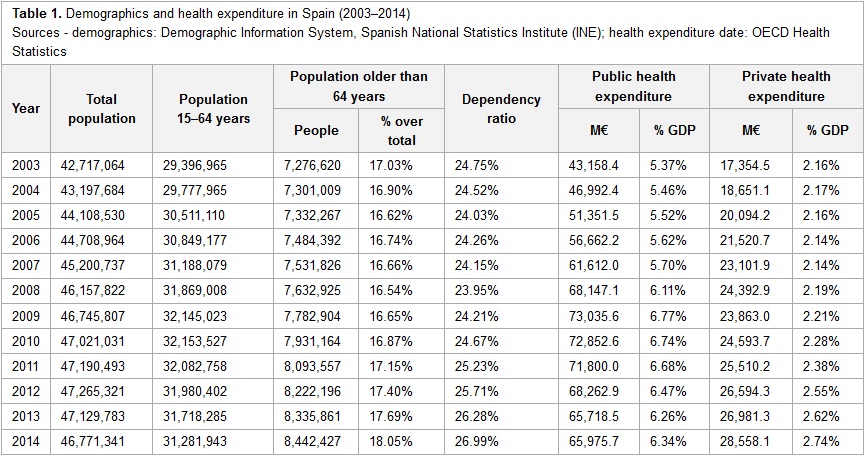Difference between revisions of "Template:Article of the week"
Shawndouglas (talk | contribs) (Updated article of the week text.) |
Shawndouglas (talk | contribs) (Updated article of the week text.) |
||
| Line 1: | Line 1: | ||
<div style="float: left; margin: 0.5em 0.9em 0.4em 0em;">[[File: | <div style="float: left; margin: 0.5em 0.9em 0.4em 0em;">[[File:Tab1 RojasdelaEscaleraIJIMAI2018 4-7.png|240px]]</div> | ||
'''"[[Journal: | '''"[[Journal:Big data and public health systems: Issues and opportunities|Big data and public health systems: Issues and opportunities]]"''' | ||
In recent years, the need for changing the current model of European public health systems has been repeatedly addressed, in order to ensure their sustainability. Following this line, information technology (IT) has always been referred to as one of the key instruments for enhancing the [[information management]] processes of healthcare organizations, thus contributing to the improvement and evolution of health systems. On the IT field, big data solutions are expected to play a main role, since they are designed for handling huge amounts of [[information]] in a fast and efficient way, allowing users to make important decisions quickly. This article reviews the main features of the European public health system model and the corresponding healthcare and management-related information systems, the challenges that these health systems are currently facing, and the possible contributions of big data solutions to this field. To that end, the authors share their professional experience on the Spanish public health system and review the existing literature related to this topic. ('''[[Journal:Big data and public health systems: Issues and opportunities|Full article...]]''')<br /> | |||
<br /> | <br /> | ||
''Recently featured'': | ''Recently featured'': | ||
: ▪ [[Journal:Generating big data sets from knowledge-based decision support systems to pursue value-based healthcare|Generating big data sets from knowledge-based decision support systems to pursue value-based healthcare]] | |||
: ▪ [[Journal:Characterizing and managing missing structured data in electronic health records: Data analysis|Characterizing and managing missing structured data in electronic health records: Data analysis]] | : ▪ [[Journal:Characterizing and managing missing structured data in electronic health records: Data analysis|Characterizing and managing missing structured data in electronic health records: Data analysis]] | ||
: ▪ [[Journal:Closha: Bioinformatics workflow system for the analysis of massive sequencing data|Closha: Bioinformatics workflow system for the analysis of massive sequencing data]] | : ▪ [[Journal:Closha: Bioinformatics workflow system for the analysis of massive sequencing data|Closha: Bioinformatics workflow system for the analysis of massive sequencing data]] | ||
Revision as of 18:53, 7 May 2018
"Big data and public health systems: Issues and opportunities"
In recent years, the need for changing the current model of European public health systems has been repeatedly addressed, in order to ensure their sustainability. Following this line, information technology (IT) has always been referred to as one of the key instruments for enhancing the information management processes of healthcare organizations, thus contributing to the improvement and evolution of health systems. On the IT field, big data solutions are expected to play a main role, since they are designed for handling huge amounts of information in a fast and efficient way, allowing users to make important decisions quickly. This article reviews the main features of the European public health system model and the corresponding healthcare and management-related information systems, the challenges that these health systems are currently facing, and the possible contributions of big data solutions to this field. To that end, the authors share their professional experience on the Spanish public health system and review the existing literature related to this topic. (Full article...)
Recently featured:










